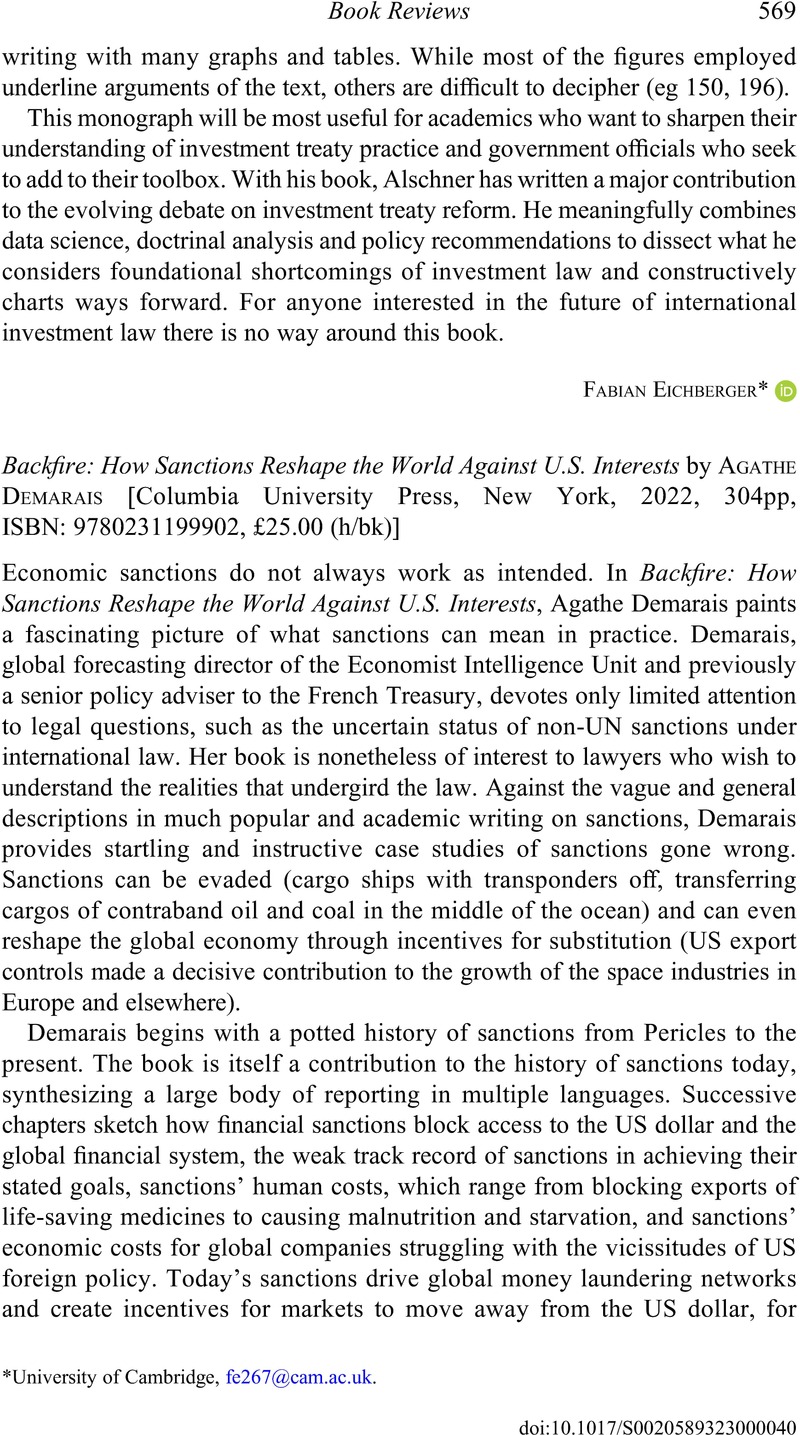No CrossRef data available.
Article contents
Backfire: How Sanctions Reshape the World Against U.S. Interests by Agathe Demarais [Columbia University Press, New York, 2022, 304pp, ISBN: 9780231199902, £25.00 (h/bk)]
Review products
Backfire: How Sanctions Reshape the World Against U.S. Interests by Agathe Demarais [Columbia University Press, New York, 2022, 304pp, ISBN: 9780231199902, £25.00 (h/bk)]
Published online by Cambridge University Press: 22 February 2023
Abstract
An abstract is not available for this content so a preview has been provided. Please use the Get access link above for information on how to access this content.

- Type
- Book Reviews
- Information
- Copyright
- Copyright © The Author(s), 2023. Published by Cambridge University Press on behalf of the British Institute of International and Comparative Law


